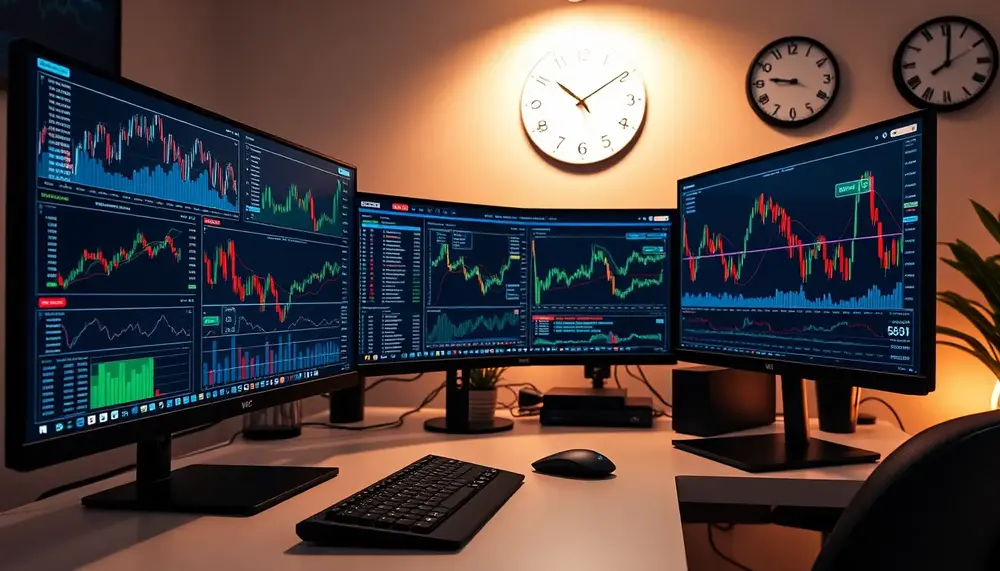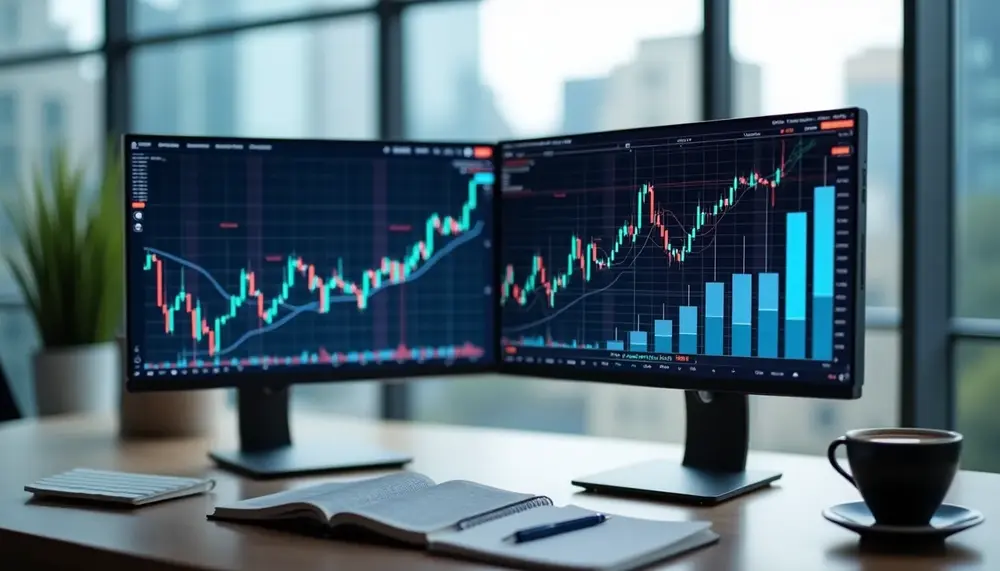Quantitative Trading
Quantitative Trading
Quantitative Trading might sound intimidating, but it's crucial to understand in the world of trading. As a tool widely used by professional traders and investors, getting to grips with the concept can prove invaluable for your trading strategy. Allow me to unpack what Quantitative Trading means and why it matters in this glossary entry. So what is Quantitative Trading exactly?
Defining Quantitative Trading
In simple terms, Quantitative Trading is a type of trading strategy that uses mathematical computations, quantitative analysis, and statistical methods to identify trading opportunities. It involves the process of developing trading systems based on predefined rules and models, mostly guided by historical market data to predict future price movements.
How Does Quantitative Trading Work?
Stemming from its name- 'Quantitative', this strategy heavily relies on numbers. Traders use complex mathematical models to identify patterns and trends in the market data. This approach to trading is often automated, with algorithms doing the heavy data crunching instead of people. With this method, a computerized trading system analyzes large volume of data to make buy or sell decisions in a split second, all based on the programmed strategy.
The Benefits of Quantitative Trading
There are several key benefits to Quantitative Trading. The use of mathematical models reduces the role of emotions and intuitive judgements in trading decisions, promoting objectivity and precision. As an automated process, it maximizes efficiency and allows trades to be executed at higher speeds than would be possible manually. Additionally, this strategy allows for backtesting, the examination of how a model would have performed based on historical data, allowing users to refine and improve their strategies over time.
The Downsides of Quantitative Trading
Despite its benefits, Quantitative Trading also comes with risks. For one, it requires a deep understanding of mathematics and statistics, not to mention programming skills for algorithm development. Moreover, a model's predictions are only as good as the data it's based on; misleading data can lead to financial loss. It's important to approach Quantitative Trading with caution and understanding.
Is Quantitative Trading for You?
Whether Quantitative Trading is right for you depends on your skill set, interests, and investment goals. If you're mathematically inclined, enjoy working with data, and have a knack for computer systems, Quantitative Trading may be a good fit. But it's equally important to bear in mind the inherent risks and challenges. As with any trading strategy, it's best to thoroughly research and understand Quantitative Trading before diving in.
Blog Posts with the term: Quantitative Trading

The article discusses the importance of having a strategy in Bitcoin trading, highlighting various advanced methods such as HODLing, trend following, swing trading and quantitative strategies like arbitrage and mean reversion. It emphasizes that while these tactics can enhance cryptocurrency...

The article explains that trading strategies are essential game plans for navigating the stock market, involving understanding objectives, managing risks, and adapting to changes. It explores various types of strategies like technical, fundamental, quantitative, day trading, and swing trading while...

Algorithmic trading uses computer algorithms to execute trades with speed and precision, leveraging strategies like trend following or arbitrage while relying heavily on data analysis; it has evolved from simple automation in the 1970s to high-frequency trading today....

Decentralized Finance (DeFi) quantitative trading combines transparency, real-time data, and algorithmic precision to revolutionize financial markets by enabling innovative strategies like statistical arbitrage and leveraging on-chain data for predictive accuracy. This paradigm shift democratizes finance, offering opportunities for both experts...

